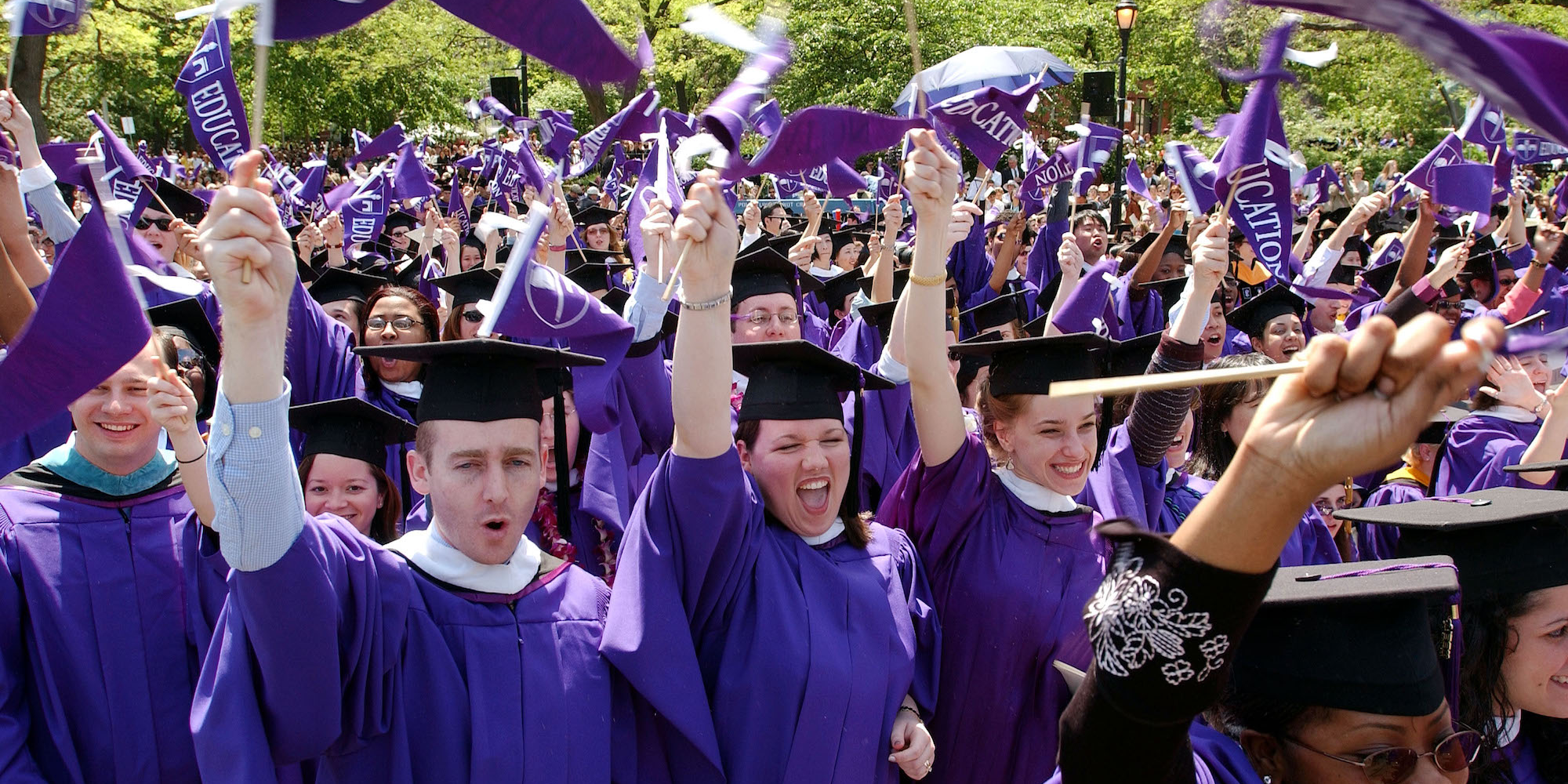- About 56% of American families with children have started saving for college, according to a new study from Sallie Mae.
- Among families with savings, the average amount saved was $18,135.
- Families with higher incomes, those with children closer to college age, and parents with bachelor’s degrees tend to have more money stowed away for college.
College has become ever more expensive, and so it’s important for parents to start saving early.
A new report from student loan company Sallie Mae breaks down the state of American parents’ savings plans for their children’s college educations, based on a survey of 2,003 adult parents of children under age 18 performed by Ipsos. The report found that 56% of parents are saving for college in 2018, similar to recent years. Among those families that are saving for college, the average amount saved up was $18,135, according to the report.
Among families with college savings, 30% of the total amount of money saved is in tax-advantaged 529 college savings accounts. Those accounts are among the smartest ways to save for college, according to Business Insider’s Tanza Loudenback. The accounts are incredibly flexible, and money invested in them “grows completely tax-free and can be withdrawn tax-free at any point, so long as it’s used to cover college tuition, fees, books, and supplies,” Loudenback wrote.
Other common vehicles for college savings are general savings accounts and investment accounts:

Sallie Mae broke down how different groups varied in their college savings. Unsurprisingly, more affluent families with college savings had, on average, more money saved up than lower-income families. Parents who reported earning more than $100,000 per year had, on average, more than seven times as much money saved for college than families earning under $35,000:

Families with college savings also tend to have more money saved up as their children approach college age, although the average family with savings for children under the age of six did already have about $6,100 stockpiled:

Parents who themselves have college degrees also tend to have higher savings for their children. Parents with bachelor's degrees or higher had more than twice as much saved up than parents with no college degree or an associate's degree:


